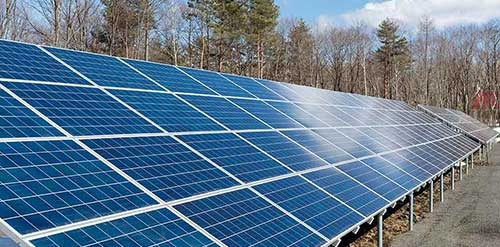Hyundai Motorstudio Senayan Park
Hyundai Motorstudio Senayan Park
Newsroom
The official news from Hyundai Motorstudio Senayan Park and a collection of innovative articles on mobility and sustainability here.
-
Solar Panel Definition and Benefits for the Environment
- Hyundai Motorstudio Senayan Park Senayan Park 2022.06.08
-
With the popularity of solar panels, many households are starting to rely on them as the main source of electricity in their homes. Just before starting to adopt, it's good to understand what solar panels are and what are their benefits they bring.Not all solar panels are equal, especially in terms of technology and material components that are used. This is an important point that must be understood first before actually switching to solar panels.
What are Solar Panels?
Solar panels are circuit modules equipped with special technology to 'harvest' the sun's heat to produce electrical energy. The special technology is called photovoltaic (PV). The modules are assembled in the form of panels, and each panel contains a photovoltaic cell that is applied to the frame.The photovoltaic cell is responsible for harvesting the sun's heat. Simply put, solar panels utilize the sun's heat to produce electricity, which can be used for various purposes. This concept makes solar panels become an alternative energy that is in great demand.Solar Panel Invention
The development of solar panels actually started 100 years ago. At first, solar panel was only used to produce steam. But the invention of photovoltaic technology by Edmond Becquerel changed the game.This technology will convert solar heat into electrical energy. This discovery was then further developed by Charles Fritts, the first real inventor of solar panels. In its early development, solar panels were made with sheets of selenium coated with gold.This discovery then became the base of solar panels nowadays, of course with various modifications and modernizations.One of them was Russell Ohl, who patented the use of silicon sheet in 1941. This discovery led to mass production of solar panels for the first time. The reason is clear, silicon is easier to obtain and more economical than gold.Benefits of Solar Panels
Eco-friendly technology is among the obvious advantages of solar panels, but there are other benefits when switching to solar panels. It’s cheap in the long run, yet environmentally friendly.1. Bill-free
Solar heat will always be free, so you don’t need to pay. So, once the installation is complete, there are no more monthly bills. The only expense is when buying components up front, plus panel installation.
The rest, solar panels can guarantee freedom related to electricity bills. This privilege can be enjoyed until the solar panels are damaged, and it will take 15-20 years.2. Reducing Carbon Footprint
Solar panels are environmentally friendly, and renewable energy. That's why, many households are starting to adopt. As an illustration, standard home solar panels can reduce 1 ton of carbon per year.Most electricity is produced from fuels, which are less friendly. Pollution and waste are bad for the ecosystem. Solar panels eliminate these problems, even prevent them before they exist. The presence of carbon footprints and pollutants can be suppressed.3. Saving cost
Among the problems that often trigger household conflicts are the monthly bill. Depending on the capacity you have, the electricity bill will differ from one another.Solar panels solve this problem by freeing you from monthly bills. That means, there is a financial allocation that can be saved in a month.4. Get Additional Income
Solar panels are capable of producing power independently, and provide economic benefits. If you have a surplus of power, try selling it. Just discuss the price you want to agree. At the very least, there is additional income from solar panels.5. Low Maintenance
Solar panel maintenance is easy, just make sure all components are in place, including panels and inverters, components that convert DC current to AC. Perhaps, it doesn't take any effort at all.
Just ensure there's nothing covering the panel. Ideally, panel cleaning is done twice a year. If you don't want to be bothered, leave this task to a special officer to handle it.6. Blackout-Free
Even today, blackouts are a common problem in some cities. This situation is clearly bad for those who work using electronic devices. Solar panels offer blackout-free as long as the components are in great shape. This component produces electric current without stopping.7. Practical
Using solar panels is the most practical way to produce electricity independently. This practicality is supported by a long lifespan. Depending on the quality, the best products can even last up to 30 years.8. Flexible
In remote areas without public electricity, solar panels can be the best solution. Solar panels are very flexible to be placed anywhere, even on a mountain slope. Homes in remote areas will benefit from the solar panel.Apart from the fact that solar panels are flexible for remote areas, another perk is portability. In certain conditions that require the solar panels to be moved, this can be done quite easily.9. Eco-Friendly
It is important for everyone to adopt an eco-friendly lifestyle. Solar panels contribute to the prevention of environmental damage. Plus, solar panels produce no noise pollution, and this is an important point if you want it for your home.It is our obligation to participate in reducing ecosystem damage from emissions and greenhouse gasses. And solar panel is the best solution for producing electricity without destroying natural resources.




